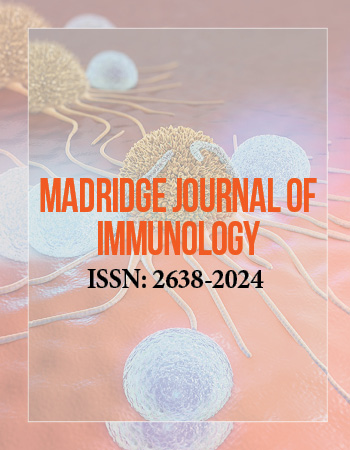International Conference on Immunology and Immunotechnology
November 1-3, 2017 Barcelona, Spain
Evaluation and Comparison of IFN-γ Molecular Expression at Protein Level with T Lymphocytes Proliferation via Recombinant Fusion Peptide Gag-Tat- Env-Pol-Nef (HIV-1) in Balb/c Mice
1Department of cellular and Molecular biology, Tehran Medical Science Branch, Islamic Azad University, Iran
2Tehran Medical Science Branch, Islamic Azad University, Iran
Introduction: Interleukins are among the group of cellular combinations and from the cytokines family that have an important role in the fortification and maintenance of immune system. IFN-γ is among the group of molecules wherein its expression causes stimulation of cellular immunity system. In this research we have studied the role and importance of Interferon gamma molecular expression as a cellular immunity index and its comparison with the cellular immune proliferation and its comparison with cellular proliferation in the control and the case groups that received 20 mM Hepes and gag-tat-env-pol-nef immunogen sequence respectively.
Material and Methods: The 6 to 8 weeksʼ male mice subcutaneously received protein at the rate 20 µg/mouse in the form of Prime/Booster. At the end of second and fourth weeks, the rats were subjected to spinal cord injury; their spleen was extracted in a completely sterile environment for 72 hours cellular growth. The second week groups received only an injection and the fourth week groups received two injections. The cellular suspension with 20x106/cell was prepared, the growth medium included RPM1640 at 10% FCS. The cellular suspension at the rate of 100 µL/well was introduced in ELISA plates for Brdu and LTT assay.
Results: The results based on the statistical analysis showed that in the Booster and Prime recipient groups separately in each group, in the Case a significant difference was not observed in T lymphocytes proliferation rate and IFN-γ expression in relation to the control group, whereas a significant difference at P<0.05 was observed in the booster recipient groups in relation to the prime and this significance relates to increase of IFN-γ gene expression and T cells proliferation( with two methods) in the booster recipient groups in relation to the Prime recipient groups. This recombinant fusion Peptide be introduced as a powerful immunogen candidate in the design of HIV poly-epitope vaccines.
Discussion: The findings shows that the acquired immunogen sequences from the HIV-1 virus have an ability to stimulate the immune system at the protein expression level such as IFN-γ and T lymphocytes proliferation and resultantly fortification of the cellular immune system and in the future with the new design of these sequences the novel therapeutic routes can be used to design medicines for HIV treatment. Today, Interferons have diverse applications in the treatment of diseases typeʼs viz. types of cancers.
Keywords: IFN-γ, LTT, Brdu, Gag-Tat- Env-Pol-Nef
Biography:
Fatemeh Rouhollah is Doctor of Philosophy in the field of Cellular and Molecular Biology, Assistant Professor and Faculty Member of Islamic Azad University, Tehran, Iran. She is the head of the Department of Cellular and Molecular Biology, former deputy at medical college of modern science, research attitudes in the field of recombinant vaccines for HIV and Evaluation of immune responses and T-cell vaccination and proinflammatory cytokines in infectious and autoimmune diseases.


